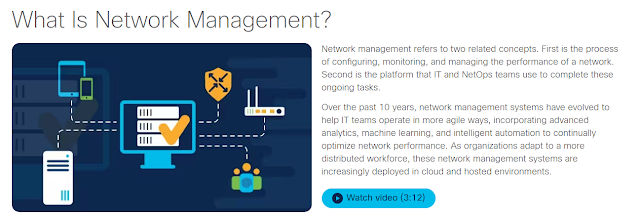In today's world, where businesses are heavily dependent on technology, it is important to ensure that your network infrastructure is reliable and efficient. To achieve this, organizations rely on network management services that provide a range of tools and techniques to monitor, troubleshoot and optimize their network performance.
Network management services encompass a broad range of activities including network monitoring, configuration management, performance management, security management, and fault management. The goal of network management is to ensure that the network is functioning optimally, that it is secure and that problems are identified and resolved quickly.
Network Monitoring
One of the primary functions of network management services is network monitoring. This involves monitoring the network infrastructure to identify potential issues before they become critical problems. Network monitoring tools use a variety of techniques including ping tests, SNMP queries, and traffic analysis to collect data on network performance.
Configuration Management
Configuration management is another important aspect of network management. This involves managing network devices such as routers, switches, firewalls, and servers, to ensure that they are properly configured and that changes are made in a controlled and consistent manner. Configuration management tools allow administrators to automate the configuration of network devices and ensure that they are compliant with organizational policies.
Performance Management
Network performance management is critical to ensure that the network is functioning optimally. Performance management tools provide administrators with visibility into network traffic and bandwidth utilization, enabling them to identify performance bottlenecks and take corrective action.
Security Management
Security management is an important aspect of network management services. It involves implementing policies and procedures to ensure that the network is secure and protected from unauthorized access. Security management tools provide administrators with visibility into network security, enabling them to identify potential vulnerabilities and take corrective action.
Fault Management
Benefits of Network Management Services
Improved network performance: By monitoring and optimizing network performance, network management services can ensure that the network is functioning optimally.
Increased reliability: By identifying and resolving network problems quickly, network management services can increase network reliability and reduce downtime.
Enhanced security: By implementing effective security management policies and procedures, network management services can help protect the network from unauthorized access and other security threats.
Better visibility: Network management services provide administrators with better visibility into network performance, security, and other critical metrics, enabling them to make informed decisions and take corrective action quickly.
Conclusion
In today's business environment, where technology is critical to success, effective network management services are essential. By providing tools and techniques to monitor, optimize, and secure the network infrastructure, network management services can help organizations improve network performance, increase reliability, enhance security, and achieve their business goals.
